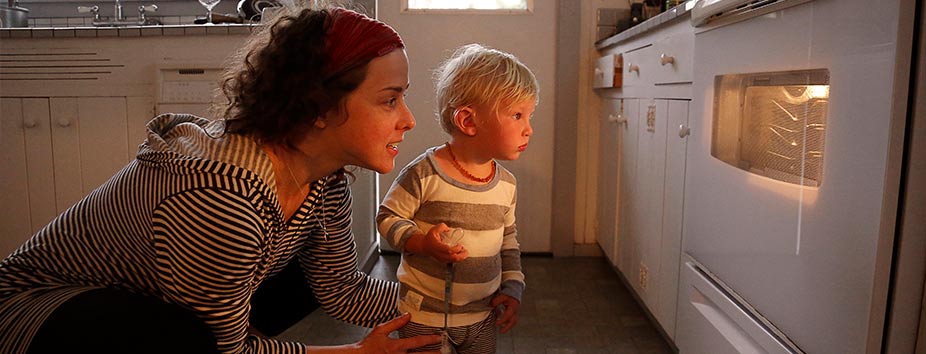Rental returns, capital gains and tax deductions
The main goal of having an investment property is to grow your wealth and generate a passive income. Here are some possible financial benefits of buying a second house and renting out your first home:
Rental returns
Your investment property can generate monthly rental income. A monthly rental income that is greater than the costs of maintaining the property – including any mortgage repayment costs – is referred to as ‘positively geared,’ which means you profit from it. If your strategy is to buy a positively geared property that will yield rental returns, it's a good idea to establish whether the rent you collect each month covers your costs.
If it looks as though rent on the property might not cover costs, it’s important to consider whether or not it will gain equity as it improves in value over time so you may realise a return when you sell. If the property is unlikely to do either of these things, it may not be a sound investment.
Capital gains over time and tax-free status
If you plan to sell your first home further down the track, it’s a good idea to research the capital growth trends for similar properties in the area. As your existing property continues to appreciate over time, you are likely to make capital gains when you sell it.
Your main residential property is generally exempt from capital gains tax. You may continue treating your first home as your main residence for capital gains purposes when you stop living in it and rent it out for up to six years. You must consult your tax adviser to determine the capital gains tax implications from the sale of your property.
Just note that previous sales aren’t a guarantee prices will remain on the same trajectory.
To find out more about property trends in the suburb you are interested in, and estimated property values, check out our property market research tool.
Tax deductions
There are certain tax deductions that you could claim against your rental property. For example, you may be eligible to claim the interest you pay on your mortgage repayments as a tax deduction, as well as costs associated with maintaining the property.
Decide if your home has rental appeal
You may love your house, but will others? Discuss with a local property manager how to maximise your home's rental appeal. Here are some questions to ask:
- Is your first home in an area where people want to rent
- Will it be easy to find and maintain good tenants?
- Is your home close to public transport, shops, and other amenities?
- Does it have any potential quirks or problems that may put renters off?
- Does it need any repairs or renovations to bring it up to a rentable standard?
Check out our guide what makes a good investment property for more information.
Property investment costs and other things to consider
When you’re thinking of buying a second house and renting your first property, you’ll need to allow for additional costs that may arise. Your rental income may cover these, but it’s wise to have a positive cash flow or a cash buffer.
These costs can include:
- Rent shortfall. If your home loan repayments and ongoing property costs are greater than the rental income you’re getting, then you’ll need to cover the shortfall.
- Tenant loss. You need to have enough cash saved to make mortgage repayments should your rental become untenanted
- Maintenance costs. Every property needs maintenance. You will need to budget for emergency repairs, regular maintenance and possibly renovations.
- Bill payments. As the owner you’re still responsible for paying certain bills, such as water, council fees, and if you own an apartment, even strata fees.
- Landlord insurance. You may need to pay landlord insurance, which can include building insurance, landlord contents insurance and property owner liability insurance.
- Real estate fees. You may need to pay property management fees if you use a real estate agent to manage the property on your behalf.
- Home loan rate changes. If you have a variable rate home loan you will need to make sure you can afford any rate increase
- Change in circumstances. Make sure you consider whether you can cover the loan repayments if your personal circumstances change.
Home loan repayments and home equity
If you rent out your first home and buy a second property, you may need a new home loan. If you have enough equity in your first home, you could use this as additional security on the loan for the new property.
The amount that you can borrow will depend on:
- The equity that you have in your first property
- Your ability to service your current home loan on your existing property, plus the new loan amount
- The total amount borrowed across both loans compared to your properties’ valuations.
The potential of your first home’s equity
Equity is the difference between the balance on your home loan and the market value of your property. You may have built up equity if you’ve paid some or all of your loan on your first home and it’s appreciated in value since you bought it.
You could use this equity instead of a cash deposit when buying a second property. The more useable equity you have in your first home, the more you may be able to borrow for a second home (provided your bank can see you’ll be able to service the extra debt). Check out our guides to unlocking equity in your home and how to use your equity to buy an investment property, and estimate your useable equity with our home equity calculator.
Your borrowing costs may be higher
Another aspect to consider is how you’ll structure your total loan over the two properties.
Interest rates on home loans for investment property are typically higher than if you were going to live in the property yourself. For this reason, it pays to discuss how you structure your home loan with your lender if you are keeping one home as an investment property, and how best to use the equity you have in your current home to help fund your second home. If you want to, get a Westpac lender to call you back for a chat about this.
To sum up
- Research the property market; know how much you could rent your property for and if it will cover your second home loan.
- Take time to investigate whether your first home has rental appeal. Talk to a local agent to get a good understanding of property trends.
- Seek financial and tax advice to understand implications that apply to your personal circumstances
- Make sure you’re aware of the costs of owning a rental property and know how you will manage these costs.
- Investigate your first home equity and what mortgage options are available for you to rent out your first home and buy a second home.



